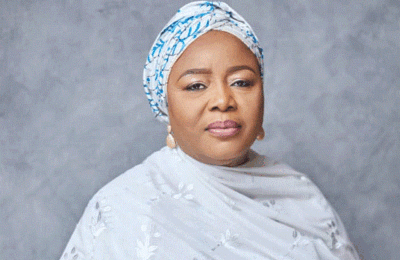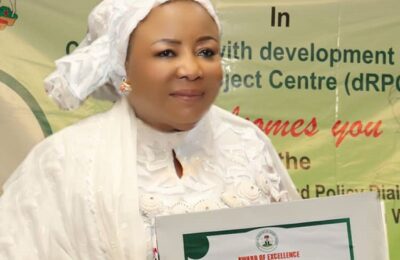There is an urgent need for reforms in our federal character laws and principles to make it in tune with the present realities we find ourselves in Nigeria. The President minced no word when he stated the obvious during the swearing in of the chairman and members of the commission charged with the management and implementation of our federal capital laws that there is a need for us as a country to reform the ways we implement our federal character principles.
The reforms embarked upon by the present Chairman of the Federal Character Commission (FCC), Dr. Muheeba Dankaka since her appointment by President Muhammadu Buhari speaks to two fundamental issues at the heart of Nigeria’s developmental drive – the IMPERATIVES of managing its diverse constituents and how that diversity management would impact the optimal efficiency of the public service.
There is no way we can gainsay the significance of the public service to Nigeria’s governance and developmental projects.
She has never had any doubt that leadership sophistication, sincerity of purpose and a machinery of state with a back-end of a re-professionalized public service manned by a new breed of public managers holds the key to the transformation of Nigeria into a capable developmental state, as well as the capacity of the state to institute good governance that will bring our diverse people together.
The major challenge lies squarely within the conception and implementation of an institutional and governance reform mechanism that will deliver a firm diverse management model within which the public service can achieve a democratic service delivery to Nigerians. She knows that achievement is still in the wind and that is why she is undertaking this reform task to put us back on track as a country.
This is because by the time the Nigerian public service had became consolidated at its inauguration in 1954,till Nigeria got her independence in 1960, it has become an instrumental tool by which the political elites intervene in the economy and the society. Its weberian frameworks allows it to become, within a pre-colonial context like Nigeria, a significant political institution that could facilitate political interventions. That really played out significantly though disappointing you with the military’s interventions, from 1966, of occupying what was called “the commanding” of the economy. This transforms into a centralisation of the Nigerian state that went contrary to the principles of federalism.
But, this is not the end of the story. Independence also brought into light the real fundamental nature of Nigeria’s diversity-one of the most significant consequences of the 1914 amalgamation efforts. For instance with the coming into force of the Nigerianisation policy, the political leadership has to face of the diversity of the Nigerian state, and the urgent need of managing it to keep the integrity as a nation-state. The choice of filling the civil service positions left by the colonialists was between meritocracy and representativeness.
The idea of representativeness in a plural society like Nigeria seems unassailable enough. There must be a mechanism that would provide the institutional framework to give everyone a sense of belonging in their own country. No wonder then that in October,1975, the then head of state, Murtala Mohammed, asked that the concept of the federal character be added to the Nigerian constitution as the formal principle of the quota system determined in who enters the civil service and other institution Al allocations to the diverse entities who lay claims to the soul of Nigeria. And without prejudice, we need to, in clear terms, acknowledge the ingenuity of the federal character principle as one of the significant means by which the Nigerian state could facilitating national integration of it’s ethnic diversity.
And a lot has been achieved in this regard. There is now an ethnic mosaic that decorates more beautifully Nigeria’s institutional frameworks and landscape. In those institutional arrangements that shows fidelity to this principles, you can see different ethnic presence. Diversity, in this sense, is suppose to be a gateway to creative management dynamic.
Unfortunately, like any policy initiatives anywhere in the world, the federal character principles has become subjected to many alterations and caricatures in practice. And this has degenerated to the point of the policy being an opportunity cost for meritocracy and efficiency and the reason for this degenerations is not far fetched; the federal character principle arrived in the constitutional framework of the Nigerian state as a political solution.
As a political solution, however, it facilitating a terrible transportation that made politics its independent variable while the achievement of the efficiency in the public goods and services became a dependent variable. If this transportation had been otherwise (and this otherwise has been the reason for her urgency in carrying out institutional reforms by the chairman today), then the critical relationship between diversity management and a competency based human resources management would have become immediately obvious.
No one can contest the fact that there is a casual relationship between professionalism, competent human resources, efficient management dynamics and service delivery services in any organisation. It is this mix that the federal character principles was meant to interject to be able to factor the creativity of diversity management with the efficiency that such diverse human resources and their emotional, social and cultural capitals can bring to beat on the service delivery objectives of the government. But then and quite unfortunately, the politicisation of the implementation of the federal character principle, a most beautiful and ingenious concept has fundamentally circumscribed the principle as a solid basis for human resources management in the public service. And this especially in terms of professionalism and meritocracy.
Indeed, we can now theorize that there is direct, but negative casual relationship between the federal character principle as a framework of diversity management, low productivity in the national economy and an inefficient service delivery that has not been able to backstop good governance in Nigeria. In very Stark terms, the federal character principle has become so porous as to facilitating the distortions of the recruitments and the selection processes in ways that allows for incompetent and inefficient workers to enter the service. This in turn impact negatively on confirmation, deployment, performance appraisal, promotion and reward management with strong implications for workers productivity and service delivery. Let’s break this down properly.
Two crucial things are wrong with the implementation of our federal character principles which Hajia Muheeba Dankaka wants to reform to correct.
First, there is a level of significant arbitrariness that has crept into its operational dynamics. There is evident lack of definite and adequate guidelines that speaks to the necessity of a balance between equity and efficiency in the application of the principles.
Second, there is also the absence of the requisite political will to compel the proper applications of the principles. The implication of this is that the federal character principles has invaded the integrity and standard of public bureaucracy as well as other governmental bodies that normally require some protections against the vagaries of politics.
It is within these loopholes that it becomes possible that the recruitments exercise would be weigh down by subjective biases that make favouritism and nepotism possible, rather than the qualifications of individuals based on objective job descriptions and selection parameters.
Thus once the principles opens up the cracks that allowed institutions and establishments to be filled by the incompetent and the inefficient, all wallowing in ethno-religious prejudices, it takes little reflections to see why it becomes difficult;
*To recruit the best and the most qualified for any specific job.
*With institutional capacity development and professionalism subordinated to the politics that the nation plays with her destiny, and
*No public officials sees herself, or is seen by others, as a Nigerian. The incapacity of the federal character principles to birth a Nigerian image, due to its multiple loopholes, creates, in addition, two debilitations for progress.
One, the treatment of public officials as anything but Nigerians, as they are viewed from the lens of ethno-linguistic group rather than of the nation-state, thereby creating a multiple system of citizenship in the polity, and two, thus providing opportunity for ethno-religious patrons and their clients to exploit and mismanage state resources without any concern for returns on investments of those public resources.
Her reforms therefore is now targeted at a recuperating meritocracy, professionalism, and competency based human resources management that will instigate efficiency in the public service, even though for many it seems difficult, but for Hajia Muheeba Dankaka, it is possible. For her, it just simply requires a deep seated structural, systemic and institutional reforms that are not just targeted at the establishments of performance Management systems.
She came to the job ready with a reform programme that has a proposed cultural changes as one of it’s fulcrums that would entail and administrative reengineering that alters current chronic bureau-pathology with a vision of the role of the public service in a knowledge age. Ultimately, her dream public service after her successful implementations s of her reforms packages is a public service that is entrepreneurial, technology-enabled, flexible, small and performance based.
Her idea is that the federal character principles will be brought through there reforms in conversation with public spititnesd that defines the essence of the public service. Not everybody can be a public servant, no matter the need for representativeness.
Finally, she has a conviction that with a functional gatekeeping frameworks like a reengineered and professionalism civil service commission and revitalized professionalism associations helping her, we shall succeed to with this reforms initiatives of hers to get a transformed, self motivated and depoliticized public service as an institution with a world class capacity-readiness to achieve service delivery to the people thereby fulfilling the administration of President Muhammadu Buhari’s mandate to the commission.
– Musa Wada writes from Abuja.




